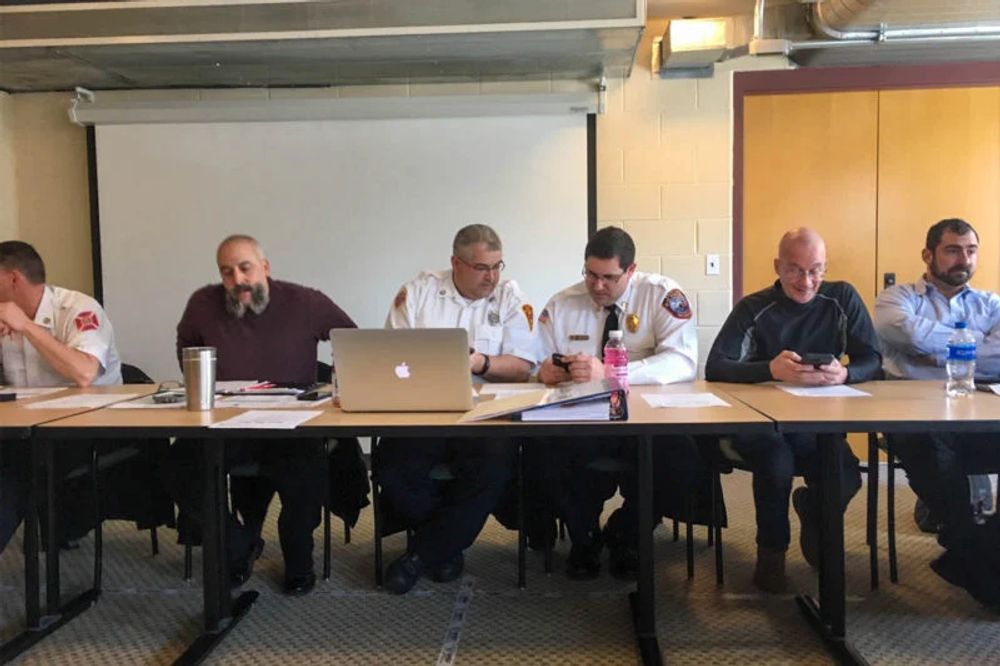EMS Crews Brought Patients To The Hospital With Misplaced Breathing Tubes. None Of Them Survived.

A panel of Rhode Island EMS practitioners and municipal fire chiefs debates whether EMS providers should be allowed to intubate at a meeting in March. (Lynn Arditi/The Public’s Radio)
In the summer of 2018, Dr. Nick Asselin was doing research on cardiac arrests in Rhode Island when he made a horrifying discovery.
Hospital records showed patients had been arriving by ambulance with misplaced breathing tubes, sending air into their stomachs instead of their lungs, essentially suffocating them. At first, he said, there were four cases, then seven. More trickled in.
By the time Asselin presented his findings to a state panel in mid-March, he’d identified 11 patients with so-called esophageal intubations that had gone unrecognized by EMS providers over the previous 2 ½ years. All 11 had died.
Jason M. Rhodes, the state Health Department’s EMS chief, recommended a way to tackle the problem that aligned with national standards: restricting the practice of placing those tubes to only the most highly trained EMS providers: paramedics. To Asselin and his colleagues at Brown University’s Department of Emergency Medicine, that approach made sense. Rhode Island is the only state in New England, and among a minority nationally, that allows non-paramedics to intubate patients.
Read the rest of the story at The Public’s Radio’s website.
